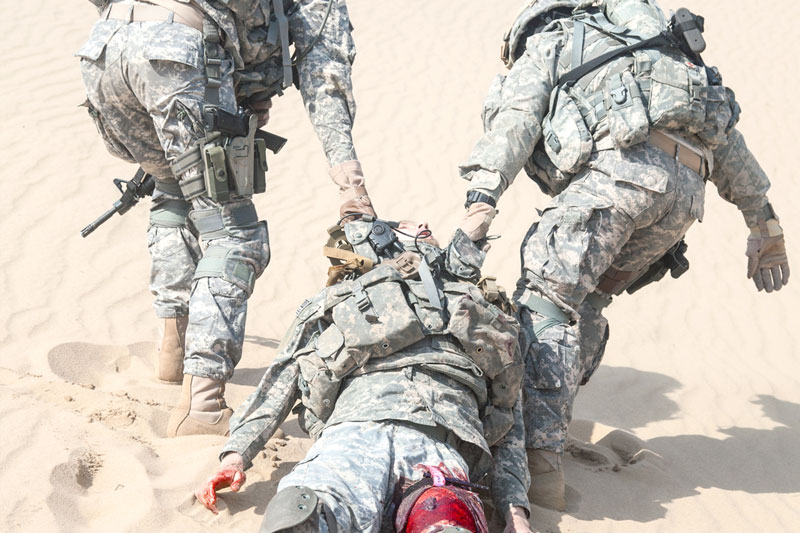Examining the record of history, it looks as if President Trump may not be able to ban transgenders from the military. 20 years ago, conservative lawmakers tried to ban HIV and AIDS carriers from service – and failed.
Imagine this: The battlefield is not a tidy or organized place, it is often chaotic and gory. Imagine you are on the battlefield, trying to save the members of your squad or execute an important mission, while also having to worry if the Private next to you is squirting out deadly infected AIDS blood onto everything. This is the sick and perverted reality that those conservative lawmakers in the 1990s were trying to avoid.
While the lawmakers were able to force Clinton to sign a military funding bill that barred infected people from serving, liberals in the Senate passed legislation to overturn the ban just 3 months later.
That disgusting case during Clinton’s Presidency is instructive as Trump attempts to ban equally harmful and destructive elements from the military – transgenders.
Trump’s Presidential Memo gives Defense Secretary James Mattis six months to decide what to do with the estimated 2,500 transgenders currently serving in the military. In the meantime, Mattis seems content to continue to let these transgenders serve in the military.
“Our focus must always be on what is best for the military’s combat effectiveness leading to victory on the battlefield,” Mattis said in a statement. “To that end, I will establish a panel of experts serving within the Departments of Defense and Homeland Security to provide advice and recommendations on the implementation of the president’s direction.”
The memo Trump signed makes his late July Twitter announcement official. In his tweet, Trump announcement that he military “will not accept or allow transgender individuals to serve in any capacity” because of the “tremendous medical costs and disruption” they incur.
In 1995, a conservative lawmaker sparked a similar debate about service members diagnosed with HIV.
Then-Republican Representative Robert Dornan (Calif.), twenty two years introduced the ban on HIV infected personnel in the 1996 defense budget. He argued that the enlistment of HIV-infected members in the military negatively impacted America’s ability to immediately react to attacks.
Using the Defense Department’s 1985 policy, people diagnosed with HIV were not allowed to enlist in the military or serve overseas on be part of any combat missions. Robert Dornan, back then, was supported by Senator Dan Coats from Indiana and Senator Trent Lott from Mississippi. They claimed that it was impact the military’s combat readiness.
Currently serving as the director of national intelligence, Coats also supported the ban on openly gay military personnel. He also played a major role in writing the “Don’t ask, don’t tell” policy in 1994, which was repealed by the Obama Administration in 2010.
During this 90’s policy debate Clinton accused the HIV clause of being “blatantly discriminatory,” against homosexuals – who still, to this day, constitute the overwhelming majority of AIDS infected.
However, the bill’s champion, Dornan countered, saying “during a time of drastically declining defense resources, including number of personnel, we need each and every member of our military to be worldwide deployable,” Dornan, the chairman of the Military Personnel Subcommittee, said at the time. “How can we afford to retain those who cannot perform all military duties?”























